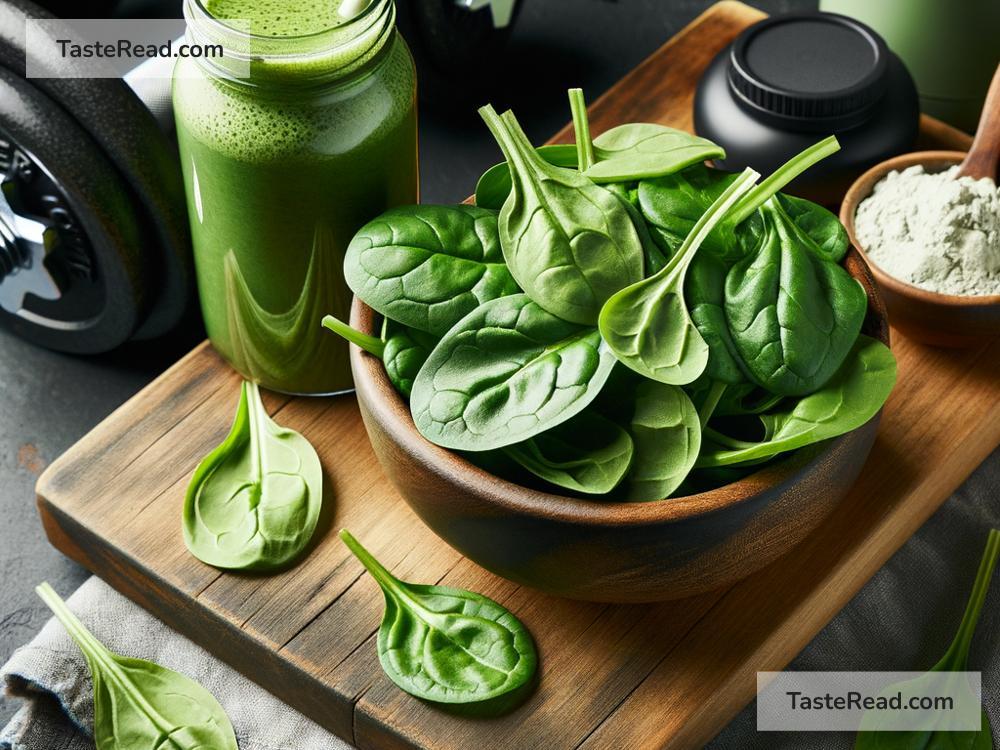Spinach Enzymes: Nature’s Secret for Protein Digestion and Muscle Recovery
If you’re someone who is into fitness, muscle recovery, and healthy eating, you’ve probably heard a lot about protein—how it helps build muscles, repair tissues, and fuel your day. But did you know that your body’s ability to digest and absorb protein effectively can greatly impact how well you recover after a workout? Interestingly, spinach, the leafy green we often associate with health, has enzymes that might give your protein digestion and muscle recovery an extra boost.
In this blog post, we’ll explore how spinach enzymes can aid protein digestion and help your muscles bounce back after exercise, plus how you can easily include spinach in your diet.
What Are Enzymes, and Why Do They Matter?
Enzymes are natural substances in your body and in foods that help carry out chemical processes. Think of them as tiny workers that speed up the breakdown of food into smaller, absorbable components. When we talk about protein digestion, enzymes like proteases break protein down into amino acids—building blocks your body uses to repair and grow when you’ve been working out or physically active.
The more efficient your protein digestion, the better your body can use protein for muscle repair after exercise. This is why enzymes are a big deal when it comes to nutrition and recovery.
Spinach and Its Powerful Enzymes
Spinach is often celebrated as a superfood, packed with vitamins, minerals, antioxidants, and even a decent amount of protein for a vegetable. But what’s emerging in recent research is its ability to support protein digestion. Spinach contains certain enzymes, such as proteolytic enzymes, that help break down protein into amino acids. These enzymes can speed up digestion, ensuring your body absorbs nutrients quickly and efficiently.
Not only does this mean you can make the most out of the protein you eat, but it also helps ease the workload on your own digestive system.
Spinach and Muscle Recovery
When you push your muscles during a tough workout—whether you’re lifting weights, running, or practicing yoga—you create tiny tears in your muscle fibers. This is part of the process of getting stronger, but those tears need time and nutrients to repair. Protein is crucial here because your muscles use amino acids to rebuild and grow.
Here’s where spinach enzymes play a role. Adding spinach to your post-workout meal or protein shake could help improve how your body processes that protein. And spinach isn’t just about enzymes—it’s also packed with magnesium, iron, and vitamin C, which support muscle function and recovery.
- Magnesium helps reduce muscle cramping and promotes relaxation after exercise.
- Iron helps your body deliver oxygen to your muscles, keeping them energized and aiding recovery.
- Vitamin C, an antioxidant, can help reduce inflammation and soreness after intense exercise.
Together, these nutrients make spinach a super-recovery food.
Benefits Beyond the Gym
While spinach enzymes are great for digestion and muscle recovery, the benefits don’t stop there. Optimized digestion means you’ll feel less bloated, more energetic, and even less prone to stomach discomfort after eating protein-rich meals. Plus, spinach supports overall gut health because of its high fiber content. A happier gut means better nutrient absorption for your entire body—not just your muscles.
How to Include Spinach in Your Diet
Adding spinach to your daily meals can be simple, whether you’re eating it raw, cooked, blended, or even in powdered form. Here are a few easy ideas:
-
Smoothies: Toss a handful of raw spinach into your morning smoothie along with protein powder, banana, and almond milk. The mild taste of spinach blends perfectly with other flavors.
-
Post-Workout Salad: Make a recovery salad with spinach, grilled chicken or tofu, nuts, and a light vinaigrette dressing.
-
Spinach Omelet: Start your day with a spinach omelet packed with protein and leafy greens.
-
Soups: Stir spinach into soups or stews during the last few minutes of cooking for added nutrition.
-
Pasta: Add sautéed spinach to your pasta or mix it with a protein-rich sauce like ground turkey or shrimp.
The Science Is Still Evolving
While spinach enzymes show promising benefits for aiding protein digestion and muscle recovery, the research is still growing in this area. However, spinach has long been recognized for its nutritional value, so including it in your diet is clearly a good idea whether or not you’re working out. Unlike some trendy superfoods, spinach is affordable, easy to find, and versatile. That’s a win for health enthusiasts everywhere!
The Bottom Line
Spinach is much more than a simple green vegetable. Its enzymes and nutrients can help your body break down protein effectively, leading to quicker muscle recovery after exercise. Whether you’re a fitness junkie or just looking to feel healthier, spinach in its many forms can play a powerful role in your digestion, energy levels, and overall well-being.
Next time you reach for that bag of spinach at the grocery store, remember it’s not just “health food”—it’s muscle food, gut food, and energy food, all rolled into one. So go ahead, add a little spinach to your plate and let Mother Nature work her magic!


